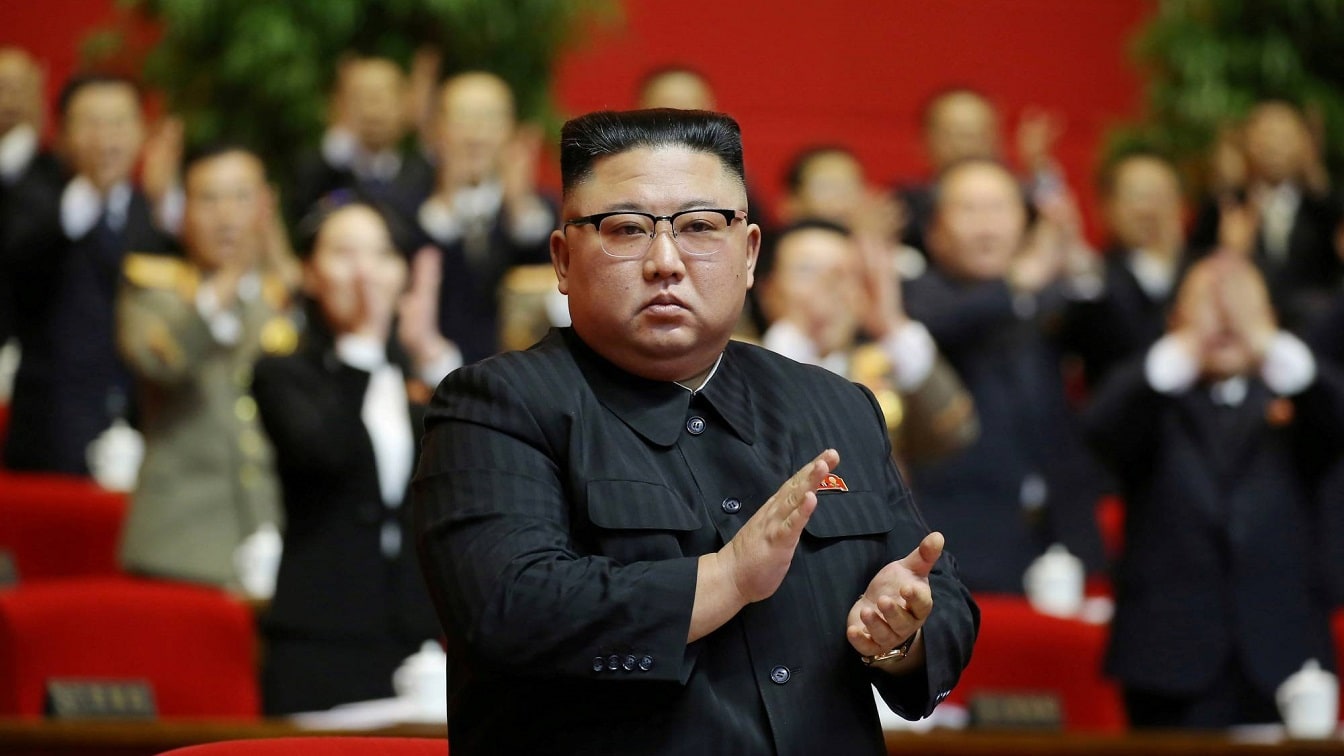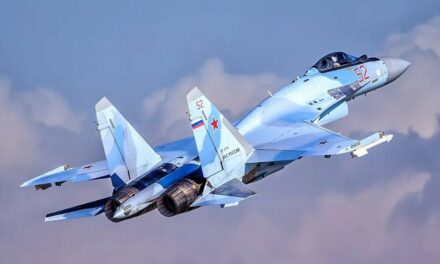We support our Publishers and Content Creators. You can view this story on their website by CLICKING HERE.
The recent Foreign Affairs article, “Why South Korea Should Go Nuclear” by Robert E. Kelly and Min-hyung Kim, argues that South Korea’s acquisition of nuclear weapons is not only justified but necessary to counter the threats posed by North Korea and an increasingly assertive China. However, this proposal is built on flawed assumptions that fail to withstand scrutiny. It presumes that an independent South Korean nuclear arsenal would enhance security, disregarding the destabilizing consequences of proliferation and the sufficiency of the U.S. nuclear umbrella. The article also mischaracterizes the current geopolitical environment as analogous to a Cold War-style standoff, ignoring the complexity of the Indo-Pacific region and the multipolar nature of today’s international order.
Through the lens of restraint, a more thoughtful approach emerges—one that addresses security concerns while avoiding the catastrophic risks inherent in nuclear escalation.
Time for South Korean Nuclear Weapons? Not Exactly
One of the most glaring misconceptions in Kelly and Kim’s argument is the assumption that an independent nuclear arsenal would enhance South Korea’s security.
In reality, such an action would destabilize the region and potentially trigger a cascade of proliferation. Japan, for example, may feel compelled to follow suit, given its security concerns vis-à-vis North Korea and China. This domino effect would increase the likelihood of miscalculation and accidental conflict, eroding decades of progress in global arms control. Rather than enhancing stability, a South Korean nuclear weapons program would exacerbate regional insecurity and heighten the risk of catastrophic confrontation. The article’s failure to address these dynamics reflects a fundamental misunderstanding of the broader consequences of nuclear proliferation.
Another flawed premise is the assertion that South Korea needs its own nuclear weapons because the U.S. nuclear umbrella is insufficient. This argument fundamentally misreads the role and effectiveness of extended deterrence. The U.S.-ROK alliance has provided robust security guarantees through American nuclear capabilities, which have been a cornerstone of South Korea’s defense since the Korean War. The presence of U.S. forces on the Korean Peninsula ensures that any attack on South Korea would automatically involve the United States, making the deterrence framework highly credible. Introducing an independent South Korean arsenal would undermine this alliance by signaling a lack of trust in U.S. commitments. Such a move risks fracturing one of the most effective security partnerships in the world, leaving South Korea more vulnerable, not less.
Even the deployment of U.S. nuclear weapons to South Korea—another idea floated by some proponents of nuclearization—would be a strategic misstep. Such a deployment would provoke North Korea, destabilize the region, and strain relations with China, which would likely see this as a direct escalation aimed at Beijing.
Furthermore, it would violate the spirit of the 1991 Joint Declaration on the Denuclearization of the Korean Peninsula, undermining international non-proliferation norms and reducing Seoul’s moral authority in advocating for a denuclearized peninsula.
Looking at the Strategic Environment Through Restraint
The portrayal of the current strategic environment as analogous to a Cold War-style standoff is another deeply flawed premise. This is not a reprise of Cold War 2.0, and the challenges facing South Korea demand a far more nuanced approach than the simplistic solution of nuclearization. A strategy of restraint—emphasizing diplomatic engagement, non-proliferation, and strengthened conventional defense capabilities—offers a sustainable and effective path to security. Restraint does not imply passivity or appeasement; it recognizes that the risks associated with escalation and proliferation far outweigh the potential benefits of nuclearization. The stakes are simply too high to abandon this approach in favor of actions that would upend the regional balance of power.
South Korea’s history demonstrates the value of restraint and diplomacy in managing tensions. The 2018 inter-Korean summits and subsequent U.S.-North Korea negotiations, though imperfect, showed that dialogue can reduce the risk of conflict. A renewed focus on diplomacy, backed by international partners, could help de-escalate tensions and create conditions for long-term stability. Instead of pursuing nuclear weapons, South Korea should channel its resources into its already formidable conventional military capabilities. Advanced missile defense systems, cyber capabilities, and enhanced intelligence-sharing with allies can bolster deterrence without crossing the nuclear threshold. These measures address immediate security concerns while avoiding the destabilizing consequences of proliferation.
What Should South Korea Do?
By refraining from nuclearization, South Korea would reinforce its commitment to the global non-proliferation regime. This stance strengthens Seoul’s credibility in advocating for denuclearization on the Korean Peninsula and beyond. A nuclear-armed South Korea, by contrast, would undermine its position and weaken international efforts to prevent the spread of nuclear weapons. Additionally, the development of an indigenous arsenal or the deployment of U.S. nuclear weapons would escalate tensions with China.
While Beijing’s rise as a regional power is a legitimate concern, nuclear weapons are not the solution. South Korea’s security vis-à-vis China is best addressed through multilateral frameworks and alliances, not unilateral nuclearization. Initiatives like the Quadrilateral Security Dialogue and enhanced cooperation with ASEAN, Japan, and Australia can counterbalance China’s influence without provoking an arms race. Moreover, Seoul should leverage its economic ties with Beijing to encourage responsible behavior, recognizing that China has a vested interest in regional stability.
Hwasong-17 North Korea ICBM. Image Credit: North Korean State Media Release.
Historical precedents further debunk Kelly and Kim’s assumptions. During the Cold War, the introduction of nuclear weapons into volatile regions often heightened tensions and increased the risk of conflict. The Cuban Missile Crisis brought the world to the brink of nuclear war, underscoring the dangers of miscalculation in a nuclearized environment. In contrast, restraint has proven effective in managing proliferation risks. South Africa’s decision to dismantle its nuclear arsenal and Brazil and Argentina’s abandonment of nuclear ambitions demonstrate that security can be achieved through non-nuclear means. These examples highlight viable alternatives to proliferation, even in challenging security environments.
The argument for South Korea’s nuclearization—whether through an indigenous arsenal or the deployment of U.S. nuclear weapons—is a dangerous and shortsighted response to the security challenges it faces. While the threats posed by North Korea and China are real, they do not justify actions that would destabilize the region and undermine global non-proliferation efforts. A grand strategy of restraint, rooted in diplomatic engagement, strengthened conventional capabilities, and multilateral cooperation, offers a far more prudent path to security. South Korea has much to lose by pursuing nuclear weapons and much to gain by upholding its commitments to the NPT and its alliance with the United States.
Restraint is a strategic and moral imperative, reflecting a commitment to peace and stability in one of the world’s most volatile regions. At a time when the international order is evolving into something more complex and multipolar, restraint ensures that South Korea and its allies navigate these challenges without succumbing to the temptations of escalation and proliferation.

Image of North Korean Leader Kim Jong Un. Image Credit: North Korean State Media.
About the Author: Andrew Latham
Andrew Latham is a Professor of International Relations and Political Theory; and Special Advisor to the President of Macalester College, Saint Paul, MN. He is also a Non-Resident Fellow, Defense Priorities, Washington, DC; a Senior Washington Fellow with the Institute for Peace and Diplomacy also in Washington, DC; a 2023-25 Education Ambassador with the Council on Foreign Relations; an Opinion Contributor with The Hill in Washington, DC; and an Opinion Contributor with RealClearDefense.

 Conservative
Conservative  Search
Search Trending
Trending Current News
Current News 




